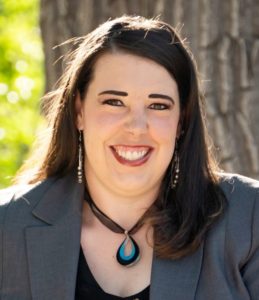In a time when our nation is experiencing a rebellion of oppression, many people of faith are wondering what we can do to become better allies to marginalized communities.
It was only recently that LGBTQ people were finally awarded the right to obtain employment without discrimination; Black people are dying at the hands of police brutality; children still remain separated from their parents at the border; and homelessness, bankruptcy and unemployment threaten many families in the face of the COVID-19 pandemic.
What, then, can we do as followers of Jesus, and as allies, to bring justice and love to these marginalized communities?
First, we must identify our own privilege and how it has empowered us. If you are white, straight, male, cisgender, and/or able-bodied, there are privileges afforded to you that are not afforded to those who identify as a person of color, LGBTQ, female or disabled.
If you are unaware of what those privileges are, you need only listen to the stories of the marginalized to find out how your life differs from theirs. Until we recognize the imbalance of power between our privilege and those who are marginalized, we can never truly be considered an ally. To dive deeper into this, Buzzfeed has created a checklist to help you measure how much privilege you may, or may not, live with.

A volunteer washes the feet of desperate children from Colombia, Venezuela and Nicaragua who limped into Pastor Eleuterio González’s refugee shelter in Matamoros, Mexico, in late June 2020. The children arrived dehydrated and with callouses on their feet, because the coyotes forced them to hand over their sneakers and shoes if they had nothing to pay with. (Photo courtesy of Fellowship Southwest)
Second, we must use our privilege to elevate the marginalized. Once we become aware of the imbalances of power, using our voice (and our privilege) to bring attention to, and raise awareness of, the ways in which people are being marginalized is crucial for the forward movement of equality.
It is not enough for us to love marginalized people quietly behind closed doors. These people are dying at the hands of ignorance, fear and bad theology. We must speak up and speak out in order to reduce the number of lives being lost every day. Whether that means speaking out in person when someone says something unjust, or whether it means using our social media feeds to promote conversations of equality, it is imperative to use our voices to advocate for change. Ginette Sagan said, “Silence in the face of injustice is complicity with the oppressor.” To remain silent implies apathy and consent. We cannot remain neutral (silent) and call ourselves allies.
Third, we must put our money where our mouths are. Caring about justice and equality means we reflect that care in every aspect of our lives. Words of love and friendship mean nothing if we continue to fuel the problems of injustice with our actions and finances.
We must begin to think differently about where we spend our money and what kind of policies/systems are being perpetuated with that money. Giving or spending your money at institutions or stores that are known for their anti-LGBTQ policies, who support conversion therapy, who don’t have explicit anti-discrimination statements, or who are ambiguous regarding their stance on social justice continues to perpetuate a society of hate, discrimination and inequality.
“Words of love and friendship mean nothing if we continue to fuel the problems of injustice with our actions and finances.”
If we claim to support marginalized people but continue to invest our money in ways that directly harm or limit their access to equality, then we are still living within our privilege, without thinking about those who live without it.
Fourth, we must use our vote to advocate for equality. This is a critical year in politics. We can no longer afford to push issues aside or ignore them claiming that they’re not “our issue.” If we want to reflect the heart of Jesus, we need to vote with our marginalized neighbors in mind.
Committing to vote for the common good (rather than just our own good) has the power to change our current trajectory and help bend the world toward justice. It is one of the single most powerful tools we have that can help create lasting change for the oppressed. And we have the opportunity and the privilege to do it simply, easily and freely.
These are not just the concerns of a particular party, these are concerns of humanity, and we have the opportunity (regardless of political party) to vote in a way that creates opportunities for a better life for those around us.
Fifth, we must listen to the voices of the marginalized from the ground up. A lot can be learned by simply listening to the stories of the oppressed. Educating ourselves and reading books by marginalized voices is a simple but powerful way of showing we care.
“It is not enough for us to love marginalized people quietly behind closed doors.”
It’s important that we challenge ourselves to listen and really seek to understand what life is like for those living on the fringes. Don’t listen to the most elite and prestigious voices of that group; listen from the bottom, from the voices that are the most deeply impacted and affected by being a part of that minority. Education and a willingness to learn and grow is perhaps the greatest form of empathy.
As an ally, it is inevitable that we will make mistakes along the way. But if and when that happens, we need to stay humble. Apologizing for our mistakes (without trying to justify why we made them) and simply listening to how we can do better next time is what makes us a strong ally.
Being an ally — to a degree — also means letting go of our privilege. We can’t hold on to our privilege and our ally cards too. When we try to hold onto both, damage is done, trust is betrayed and people are hurt. I have seen this multiple times in both my professional and personal life, which is why I believe it is so important for us to step up and make a change.
Marginalized people need more allies. They need you. If we collectively lay down our pride, use our privilege to elevate the voices of the marginalized and have integrity to stand by what we say, together we can create a better, safer and more loving place for everyone to live and thrive.

